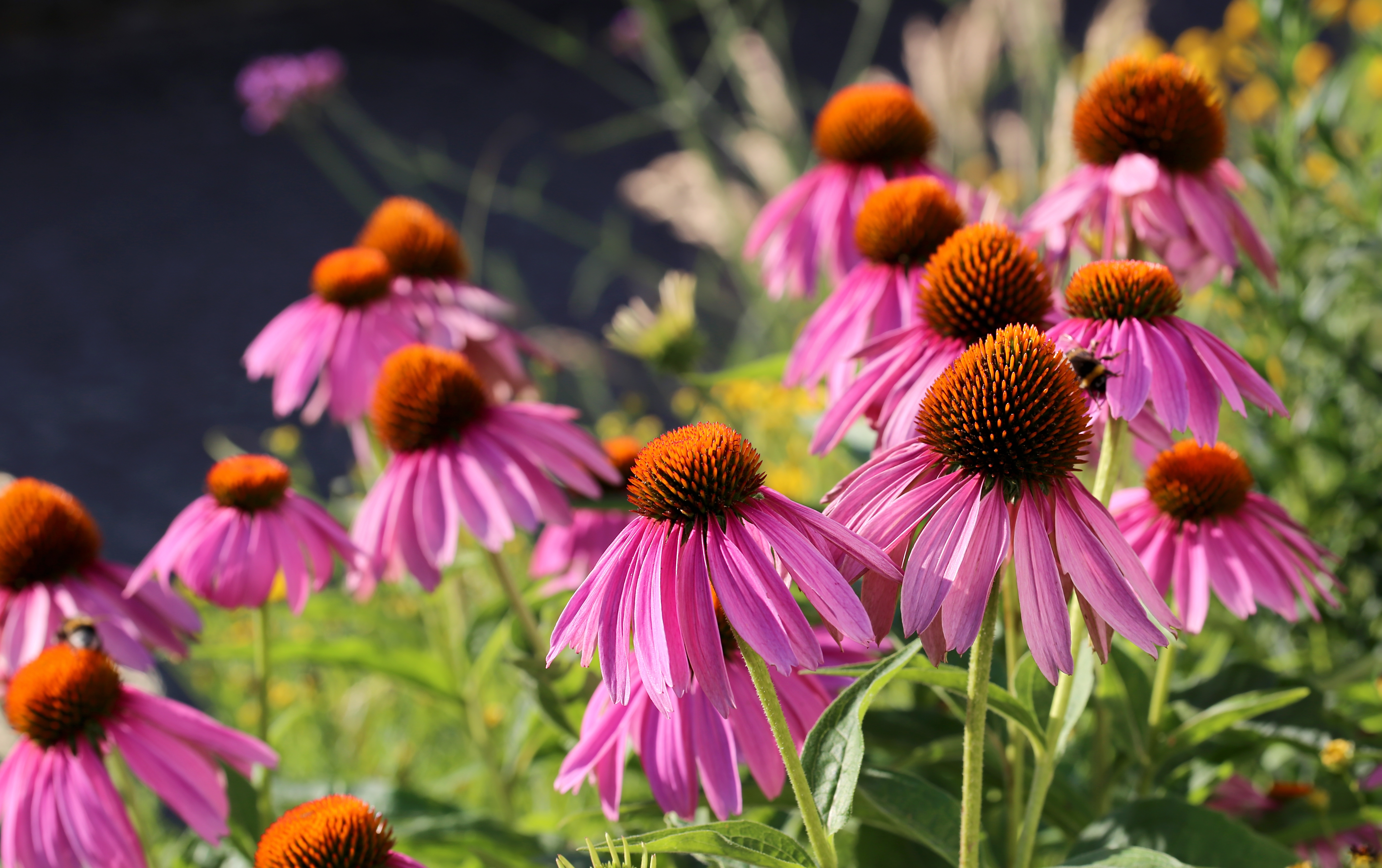Echinacea, << ehk uh NAY shee uh or ehk uh NAY see uh, >> is a plant that grows purplish flowers on slender stems. The narrow-leaved purple coneflower, pale purple coneflower, and common purple coneflower are the most common species (kinds) of echinacea. They develop pinkish white to purple flowers, and possess leaves that range from oval-shaped to lance-shaped. People have commonly used these three species in medicines.

Traditionally, Native Americans used echinacea roots and root extracts to treat such ailments as colds, headaches, snakebites, stomachaches, and toothaches. Today, people may take preparations of echinacea to help treat colds, influenza, and various infections. People also take echinacea extracts to help boost their immune systems. Research suggests that such extracts increase the activity of phagocytes in the body. Phagocytes are white blood cells capable of destroying disease-producing bacteria and other harmful material.
Gardeners commonly plant echinacea as ornamental flowers. Due to overcollection, some wild species of the plant are in danger of disappearing.
